In pictures: veterinary teaching hospital opens in Suffolk
Centre gets overwhelming support from animal owners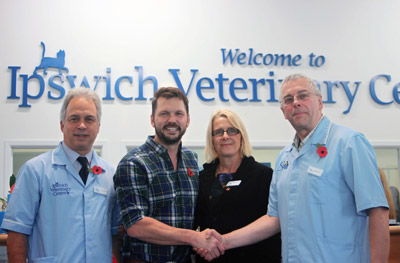
Jimmy Doherty shakes hands with practice partner and veterinary surgeon Roger Harvey. Left and centre: partner Martin Barrow and Denise Wright, practice manager.
Over 2000 members of the public and their pets, as well as local veterinary practices, turned out for the special open day event which also included a commemoration of animals in war.
Ipswich Veterinary Centre is a purpose-built, modern practice that incorporates training facilities for veterinary nurses, receptionists and managers, companion animal trainers and behaviourists as well as postgraduate courses for veterinary surgeons.
The partnership with Central College of Animal Studies ensures that students are able to train in a professional environment while practicing vets and nurses lecturers are able to share their collective expertise.
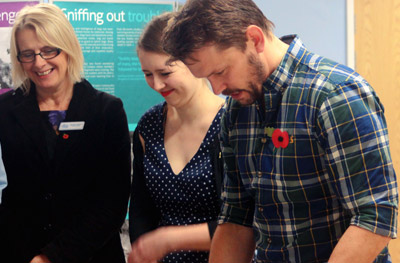
Jimmy meets PetFocus editor Sarah Kidby who set-up and run a workshop to commemorate the role of animals in war.
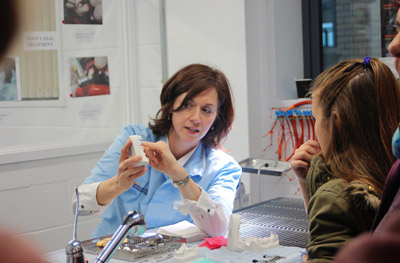
Thirty-five veterinary surgeons and nurses gave presentations on a wide range of farm, equine and pet-related topics, including exotics, ultrasound, imaging and dentistry.
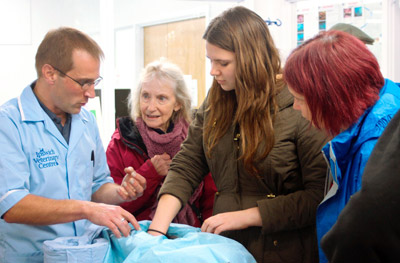
Visitors were able to test their surgery skills in a game of 'hunt the foreign body'.
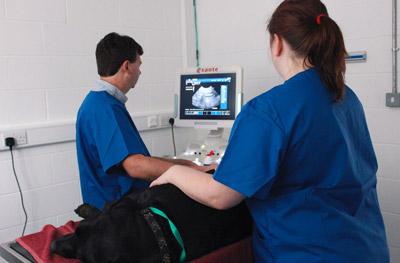
Staff pets helped to demonstrate the ultrasound equipment.
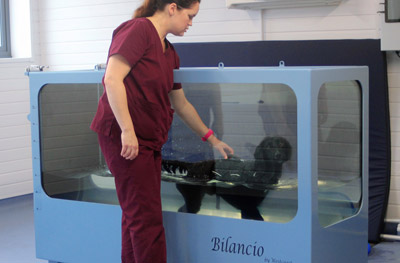
The hydrotherapy pool and treadmill were fully operational, and people were able to watch the dog groomers at work in the new grooming lounge.
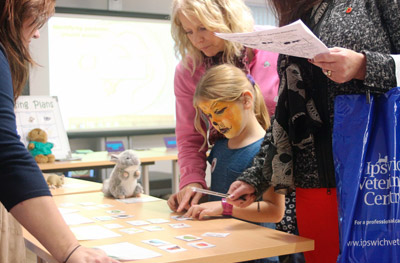
A family works out a nursing plan for a chinchilla patient that had a wound in one ear.

Children took part in an 'around-the-bases' quiz and there were lots of animals to meet and learn about, including some more unusual pets such as snakes, tortoises and miniature donkeys.



 The latest
The latest